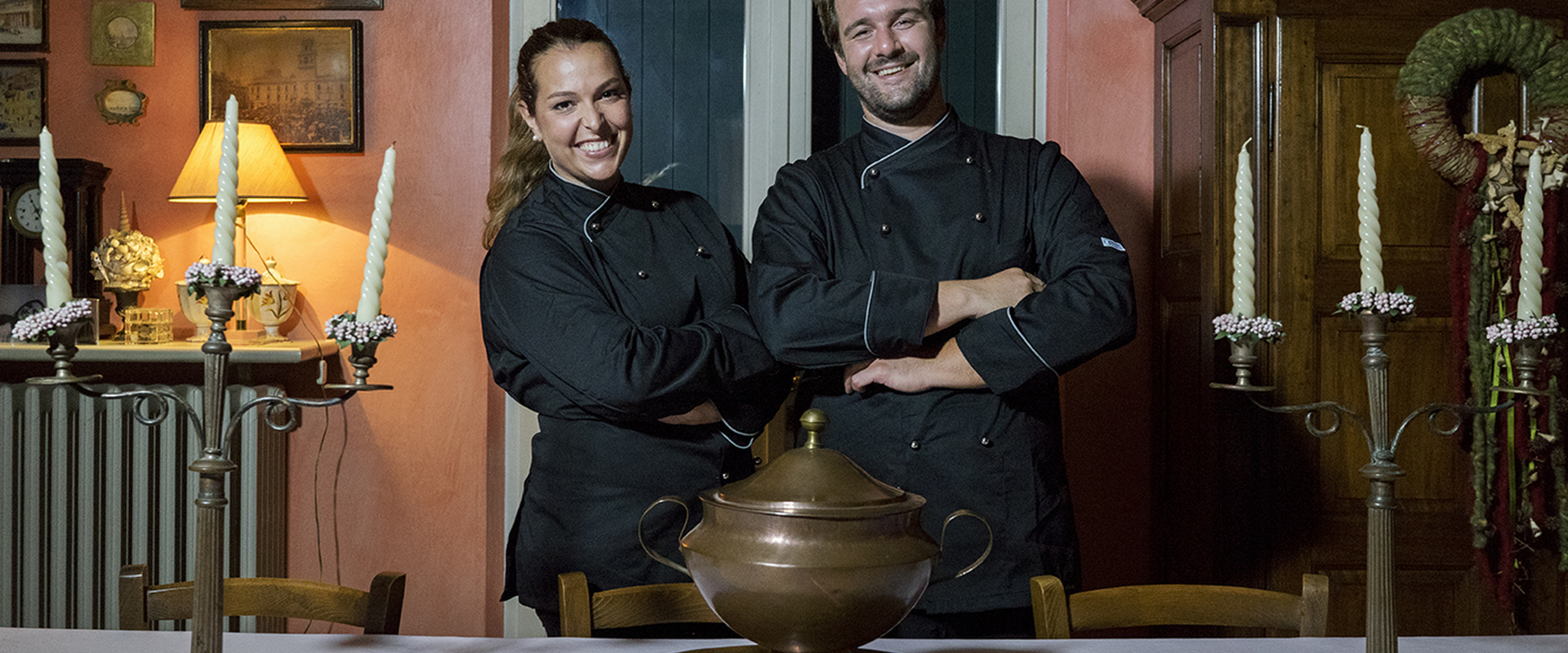Chef Maria Amalia Anedda: tradition and innovation (part II)
2017-01-09
Young chef from Parma
Maria Amalia Anedda continues her story. Focusing on her concept of cooking: refined, but linked with tradition.
After their experience in Bordeaux, she and her partner, chef Jacopo Bracchi, decided to go back to Italy and settle in Parma.
“
We were both selected for the television programme “Top Chef”, and, at the same time, we were asked to go and see a restaurant in Rocca di Sala Baganza, a pretty little town in the hills outside Parma. When we saw it, we fell in love with it; it has great potential.”
And in fact you will be opening your restaurant here early in 2017.
“
Yes, it will be a restaurant where we offer refined cuisine in the right balance with local traditions and dishes. I believe that local dishes and ingredients are an important heritage, but so is the philosophy behind them, which is often the elegance of simplicity and the manual skills necessary to make them.”
What is your concept of cooking, Maria?
“
Maintaining the right balance between tradition and innovation, bringing the know-how and techniques of the present into the future. A form of cooking in which every traditional dish is backed up by study of health, nutrition and sensory qualities. In which quality ingredients are used, foods of known origin, because the local territory requires it. We may make traditional dishes lighter, by studying ways of cooking them, but there are certain classics of our gastronomic culture which we must maintain if we are not to give up an experience of great quality and profound significance.”
Which dish best represents your life story?
“
All kinds of filled pasta, from anolini to tortelli. And especially the pasticcio di maccheroni with a sweet crust traditionally made in Ferrara. That is a dish in which you can count on the surprise factor! The idea of sweet pasta, like pastry, which has something savoury inside it, is a true miracle! I’ve been eating it since I was a little girl. In my family we made it with mezze maniche and meat sauce, with the addition of chicken livers and dried mushrooms. This is the recipe that first made me interested in the mechanisms behind creating a dish ….”
When can we talk of “ethical food”?
“
When we pay attention to how a food is produced. A cow raised in the traditional manner, not in a factory farm; a tomato from our own garden, grown without chemicals … Ethics in the kitchen is a new luxury. People no longer spend money on caviar, oysters and champagne, but on ethical products, paying attention to whether farms treat animals in a humane manner, whether they use traditional natural methods, small growers who work conscientiously rather than big brands. People are interested in old-fashioned ways of producing food. And in this case, going back is a form of evolution.”
What does food mean to you?
“
To me it is above all a form of personal expression, a way of conveying something to other people. And there’s a story behind every dish: the study of cooking techniques, the choice of ingredients, striving to achieve balance in different combinations.”
Mariagrazia Villa
